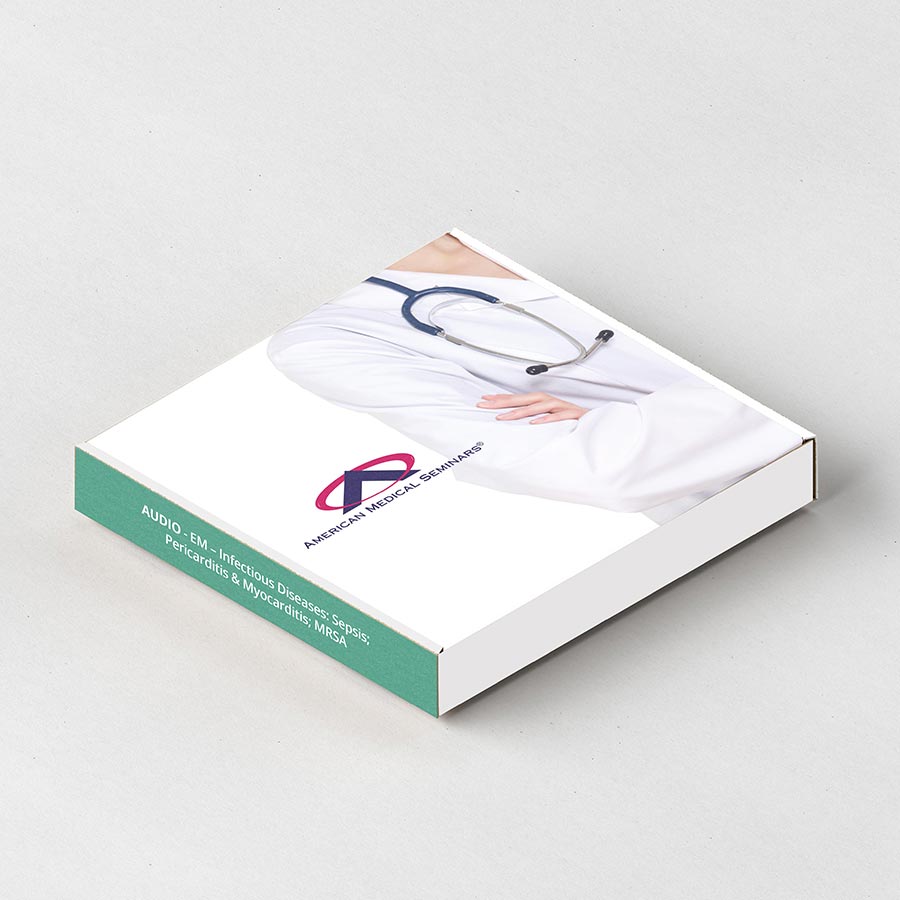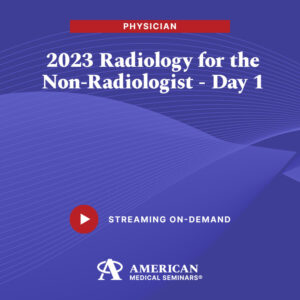Title: Emergency Medicine – Infectious Diseases: Sepsis; Pericarditis and Myocarditis; MRSA
Faculty: Andrew D. Perron, M.D., F.A.C.E.P., F.A.C.S.M
Original Release Date: July 1, 2017 Expiration Date: July 1, 2020
TOPIC 1: Early Goal Directed Therapy in Sepsis: Why All the Fuss?
Upon completion of this session, the participant should be able to:
- Determine the pathophysiology of sepsis and the sepsis syndrome.
- Evaluate the scope of the problem regarding effective management of sepsis in the ED.
- Appraise the principles of early goal-directed therapy in the treatment of sepsis.
- Employ the applicable “surviving sepsis” guidelines.
- Assess the potential gains that can be realized, as well as the pitfalls to avoid, in the management of sepsis utilizing early goal directed therapy.
TOPIC 2: Pericarditis and Myocarditis: How Can 2 Diseases Sound So Similar and Act So Differently?
Upon completion of this session, the participant should be able to:
- Illustrate the pathophysiology and clinical presentation of these two entities.
- Differentiate the potential pitfalls in the diagnosis and management of these diseases.
- Analyze the commonalities and differences of these closely related diseases.
- Recommend evidence-based work-up and treatment options for pericarditis and myocarditis.
TOPIC 3: Community Acquired Methicillin Resistant Staphylococcus aureus (CA-MRSA): An Update
Upon completion of this session, the participant should be able to:
- Assess risk factors for CA-MRSA infection.
- Specify the best-evidence management of skin and soft-tissue infections in the era of drug resistance.
- Assess both pharmacologic and non-pharmacologic management strategies for this disease entity.
- Demonstrate familiarity with the latest treatment recommendations for CA-MRSA as directed by the CDC.
- The receipt for any incentive-associated purchase will designate the value of the gift card separately from the cost of the learning activity.
- This incentive may have implications on your tax reporting obligations. Any reimbursed amount must be declared as personal income for tax purposes.


